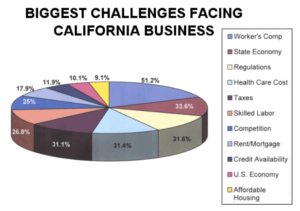How to Create a Common Dream

Updated 12 8 20. All companies are out to achieve success. Success can be defined in different ways, but in most cases, companies define success by results. Many companies have mission statements, common dreams – or goals – that they use to motivate their workforce or to define their purpose. These statements are also often used to define success. Mission statements can be a valuable tool to help keep everyone within the company focused on the goal or purpose of a company and can be the shared, common purpose which will be the steadying reminder of the desired end result. However, are these mission statements or definitions of success really a common dream? What’s more, is there truly such a thing as a common dream?
Developing a Common Dream Together
When asked about this, Joel Peterson, Chairman of JetBlue and the Founder of Peterson Partners, responded with his take on common dreams. Joel has spent many hours speaking and writing about trust and integrity, including authoring the book “The 10 Laws of Trust.” Joel started by telling me that people have a hard time trusting something or someone if they don’t know what the goal is. “A lot of companies will actually create these mission statements…that are kind of interchangeable.” These kinds of statements aren’t really a common dream at all, according to Joel. In reality, they simply sound good. “People want to frame them and put them up on a wall.” However, “if you develop a common dream together that inspires people – which gets back to the idea that people want to be a respected member of a winning team doing something meaningful – you can develop a mission around that, and you’ll have people you can’t stop.”
Helping Others Achieve Their Dreams
Joel was also asked about the difference between a common vision and a common dream. It was pointed out that a common dream really gives a better visual of trying to make something happen that does not currently exist. Joel said that the mission at Peterson Partners is to help entrepreneurs achieve their dreams. Entrepreneurs have big dreams and they want to change the world. They want to do something that no one else has done before so they think very big. Therefore, “we view our role as capital providers as people who provide help to them, to help them achieve their dreams; and that becomes our dream.”
Coming Together for a Common Purpose
A common dream is not a mission statement or a company mantra placed on bulletin boards throughout an office building. A common dream is created when people or companies come together with a vision and a common goal and then work together to achieve that mission or goal. Having a true common dream can go a long way in helping all parties involved achieve the mission, or results, they are seeking. That can be a powerful driving force on the path to the success.
We hope you enjoyed this article about how to create a common dream. If you have any questions or need expert tax or family office advice that’s refreshingly objective (we never sell investments), please contact us at Info@GROCO.com or visit www.GROCO.com. Unfortunately, we no longer give advice to other tax professionals gratis.
How to Successfully Sell Your Company
How to Successfully Sell Your Company Tips for Privately-Held Business Owners By Jason Pfannenstiel Be clear about your motivation for selling. Reason for the sale is among the first questions buyers will ask. Your personal and professional reasons should be more than simply wanting to cash out for a certain magical dollar value. Before you…
15 Ways to Improve Your Cash Flow Now
15 Ways to Improve Your Cash Flow Now By Howard Fletcher Cash management theory and techniques are well understood and practiced by treasury managers in large corporations. They use sophisticated models and cash management tools that allow them to predict and manage cash. Many of these are beyond the reach or need of small companies.…
Survey: Biggest Challenges Facing California Businesses
Survey: Biggest Challenges Facing California Businesses A recent survey was conducted to determine what business owners in California thought the biggest challenges facing their businesses were. Out of 1500 questionnaires, these are the percentage of respondents who checked off a box next to each challenge. (Respondents were allowed to select more than one box, so…
5 Strategies to Successful Cash Flow Management
5 Strategies to Successful Cash Flow Management By John Reddish How can you predict, avoid and/or, minimize the impact of a cash emergency? Managing cash flow is every manager’s challenge, every day, every year. Those managers who keep a close eye on their daily activity and emerging industry trends can help reduce their company’s exposure…


